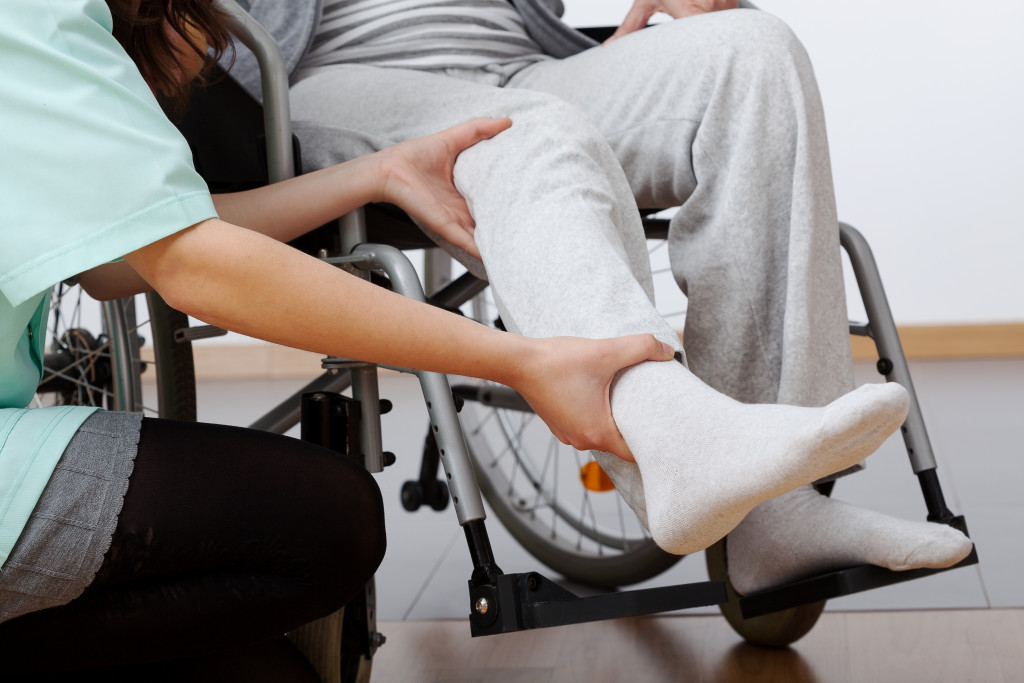• Research and support your disabled loved one’s education to empower them. Look for programs that cater to special needs.
• Encourage your disabled loved one to build strong relationships with others by attending social events and going out in public places.
• Understand and advocate for your disabled loved one’s rights. Educate yourself on disability laws and policies, and seek legal help if needed.
• Show your disabled loved one that they are included in their daily life with love and care from family members or friends.
Life is filled with unique challenges for everyone, but it often presents more difficulties for individuals with disabilities. Whether it’s a physical, sensory, or cognitive impairment, a disabled loved one may require various types of support from their friends and family.
It’s easy to feel overwhelmed when attempting to assist someone with a disability, but don’t worry. In this blog, you will learn essential tips on supporting your disabled loved one in different aspects of their life, ensuring that they feel included, uplifted, and empowered daily. Read on to learn more.
Education and Empowerment
Education is a fundamental aspect of everyone’s life, regardless of their abilities. Indeed, knowledge is power, and empowering a disabled loved one starts by ensuring that they have access to the proper education they need.
Start by researching schools and programs that cater to special needs in your community. Look for institutions that can provide individualized education programs (IEPs), therapies, or support services. Talk to your loved one, their teachers, and their therapists to stay informed about their progress and take an active role in supporting their educational goals.
Social Inclusion and Connection
Having a strong social support network is vital for everyone, including disabled individuals. It’s essential to encourage your loved one to build connections with others. This will help them feel more included and make them less likely to suffer from feelings of isolation or depression. Here are a few ways to help them foster relationships with the people around them:
Encourage them to attend social events
Social events such as birthday parties, movie nights, and other gatherings are great opportunities for disabled individuals to build stronger relationships. Make sure your loved one has access to these events and is comfortable participating by helping them create an icebreaker or conversation starter that they can use if necessary.
Take them out to public places

Taking your loved one out to different types of public places such as parks, malls, and restaurants will let them build meaningful connections with people from various backgrounds. Plus, it’ll give them a chance to explore the world around them and expand their horizons.
Have them engage in recreational activities
Participating in recreational activities can help disabled individuals build more confidence and find common ground with other people. Consider exploring different sports or leisure activities that your loved one might be interested in, such as swimming, bowling, or theatre.
Introduce social media
Introducing your loved one to social media can be beneficial, as it will help them build connections with people from all walks of life. It might even open up the door to meaningful friendships and new experiences they would have never had before.
By ensuring your disabled loved one has a solid social support network, you can make sure they feel included and accepted in the community.
Advocacy and Understanding
A vital aspect of supporting a disabled loved one involves understanding and advocating for their rights. It’s crucial to educate yourself on disability laws and policies, as this will help in navigating the complexities of their daily lives.
For example, knowing your loved one’s legal rights in terms of education, employment, healthcare, and public accommodations can prove useful when advocating for their needs. Speak up for your loved one when necessary and help them understand their rights so they can learn to advocate for themselves in the future.
Legal Assistance

Navigating the legal system can be challenging, especially when it comes to adult guardianship. If you feel that your disabled loved one needs support or protection due to their impairment, it may be beneficial to seek assistance from an adult guardianship lawyer familiar with disability-related issues.
A qualified adult guardianship lawyer can provide legal advice on the best course of action to ensure your loved one’s safety and well-being, as well as provide assistance in guardianship applications.
Supporting a disabled loved one involves much more than physical assistance – it also requires understanding and advocacy. By educating yourself on disability laws and policies, introducing social media to your loved one, encouraging them to attend social events, taking them out in public places, having them engage in recreational activities, and seeking legal help when necessary – you can make sure they feel included and empowered in their daily life. With the right amount of love and support from family members or friends like you, individuals with disabilities can lead lives filled with purpose despite any challenges that come their way.

